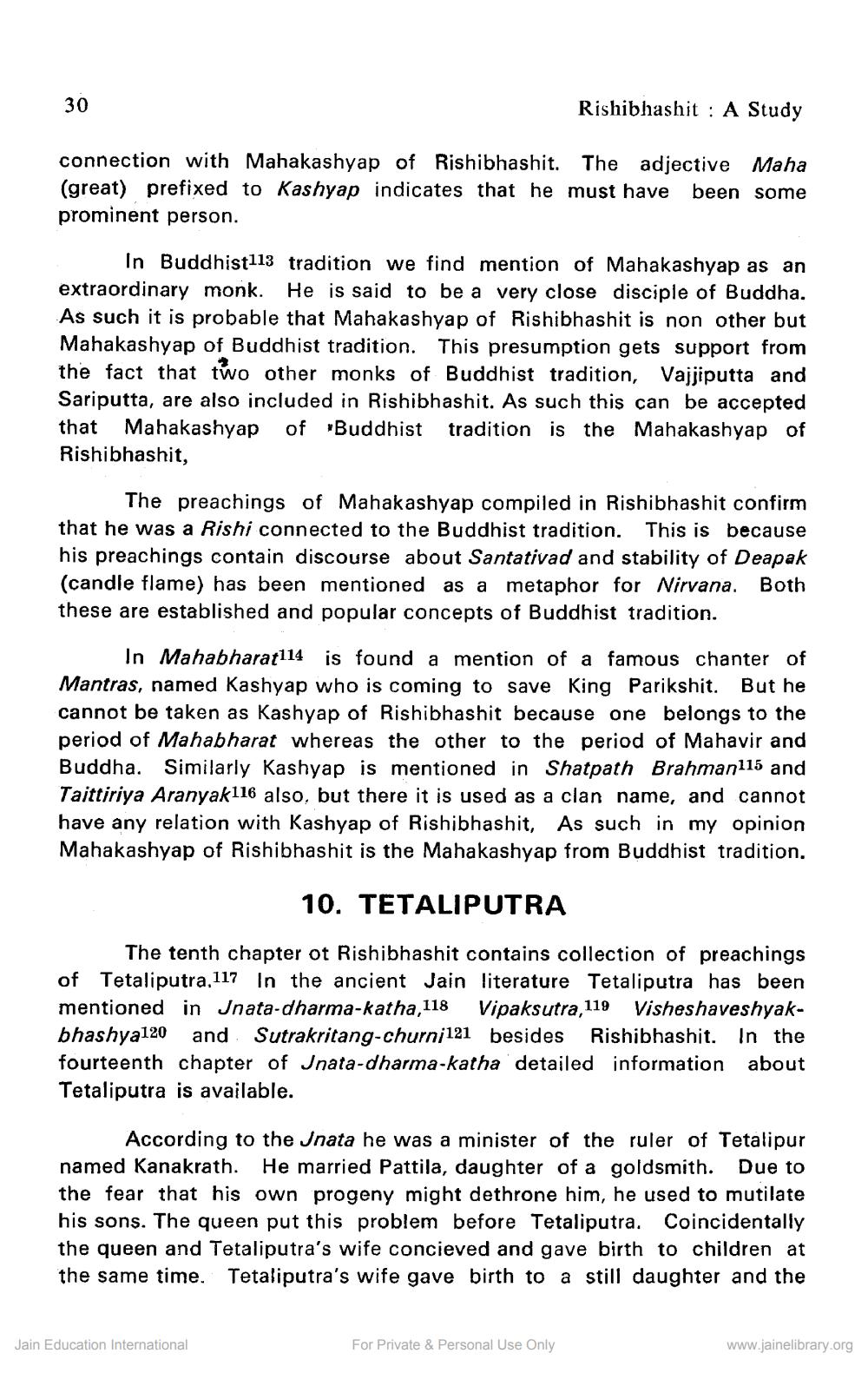________________
30
Rishibhashit : A Study
connection with Mahakashyap of Rishibhashit. The adjective Maha (great) prefixed to Kashyap indicates that he must have been some prominent person.
In Buddhist113 tradition we find mention of Mahakashyap as an extraordinary monk. He is said to be a very close disciple of Buddha. As such it is probable that Mahakashyap of Rishibhashit is non other but Mahakashyap of Buddhist tradition. This presumption gets support from the fact that two other monks of Buddhist tradition, Vajjiputta and Sariputta, are also included in Rishibhashit. As such this can be accepted that Mahakashyap of Buddhist tradition is the Mahakashyap of Rishibhashit,
The preachings of Mahakashyap compiled in Rishibhashit confirm that he was a Rishi connected to the Buddhist tradition. This is because his preachings contain discourse about Santativad and stability of Deapak (candle flame) has been mentioned as a metaphor for Nirvana. Both these are established and popular concepts of Buddhist tradition.
In Mahabharat114 is found a mention of a famous chanter of Mantras, named Kashyap who is coming to save King Parikshit. But he cannot be taken as Kashyap of Rishibhashit because one belongs to the period of Mahabharat whereas the other to the period of Mahavir and Buddha. Similarly Kashyap is mentioned in Shatpath Brahman115 and Taittiriya Aranyak116 also, but there it is used as a clan name, and cannot have any relation with Kashyap of Rishibhashit, As such in my opinion Mahakashyap of Rishibhashit is the Mahakashyap from Buddhist tradition.
10. TETALIPUTRA
The tenth chapter ot Rishibhashit contains collection of preachings of Tetaliputra, 117 In the ancient Jain literature Tetaliputra has been mentioned in Jnata-dharma-katha, 118 Vipaksutra, 119 Visheshaveshyakbhashya120 and Sutrakritang-churn;121 besides Rishibhashit. In the fourteenth chapter of Jnata-dharma-katha detailed information about Tetaliputra is available.
According to the Jnata he was a minister of the ruler of Tetalipur named Kanakrath. He married Pattila, daughter of a goldsmith. Due to the fear that his own progeny might dethrone him, he used to mutilate his sons. The queen put this problem before Tetaliputra. Coincidentally the queen and Tetaliputra's wife concieved and gave birth to children at the same time. Tetaliputra's wife gave birth to a still daughter and the
Jain Education International
For Private & Personal Use Only
www.jainelibrary.org




